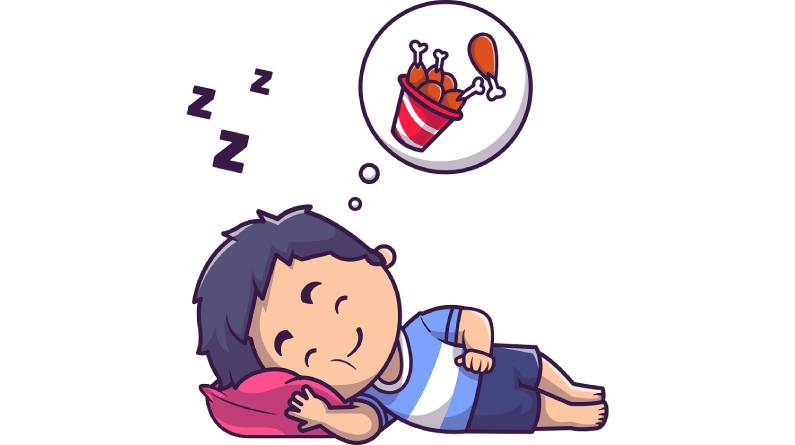The Sleep-Appetite Connection: How Lack of Sleep Affects Our Eating Habits
Recent research has shed light on the intricate relationship between sleep duration and appetite regulation. It turns out that short sleep durations can lead to an increase in Body Mass Index (BMI), and it’s all connected to the hormones that control our appetite.
The Hormonal Players: Ghrelin and Leptin
Ghrelin, often referred to as the “hunger hormone,” is secreted by the stomach when it’s empty. This hormone triggers the brain to signal hunger. On the other hand, leptin, the “fullness hormone,” is released when we’ve eaten enough, signaling the brain to stop eating.
The Impact of Sleep Deprivation on Ghrelin and Leptin
When we don’t get enough sleep, ghrelin levels increase, stimulating the brain to feel hungry more often. At the same time, leptin levels drop, making it harder for the brain to signal fullness. This hormonal imbalance can lead to overeating and weight gain.
Other Key Players: Neuropeptides, Orexin, Insulin, Cytokine, and Endocannabinoid
Neuropeptides regulate various physiological processes, including metabolism and appetite. Insufficient sleep can affect eating habits in two ways: increasing hunger pangs and building up appetite for unhealthy foods.
Orexin, a neurotransmitter, becomes more activated during sleep deprivation, triggering hunger pangs and increasing appetite.
Sleep deprivation can also lead to changes in insulin sensitivity, making it harder for the body to regulate blood sugar levels.
Cytokine levels increase with short sleep, contributing to insulin resistance and increased hunger.
Endocannabinoid, a lipid that acts on the brain like marijuana, makes eating more enjoyable, especially when it comes to junk food and sweets.
The Sleep-Deprived Brain: Reduced Activity and Increased Pleasure-Seeking
Research shows that sleep-deprived brains exhibit reduced activity in nerve networks involving decision-making. At the same time, pleasure-seeking parts of the brain are stimulated, influencing food choices and leading to unhealthy eating habits.
The Importance of Sleep in Regulating Appetite
Understanding the complex relationship between sleep, appetite, and weight regulation is crucial for maintaining a healthy lifestyle. By prioritizing sleep and practicing healthy eating habits, we can reduce the risk of weight gain and obesity.
References:
https://www.tuck.com/sleep-and-appetite/
https://www.ncbi.nlm.nih.gov/pmc/articles/PMC535424/
https://www.sleepfoundation.org/articles/connection-between-sleep-and-overeating
https://www.medicinenet.com/script/main/art.asp?articlekey=227142
https://www.medicalnewstoday.com/articles/307203
https://www.webmd.com/sleep-disorders/features/10-results-sleep-loss#1

